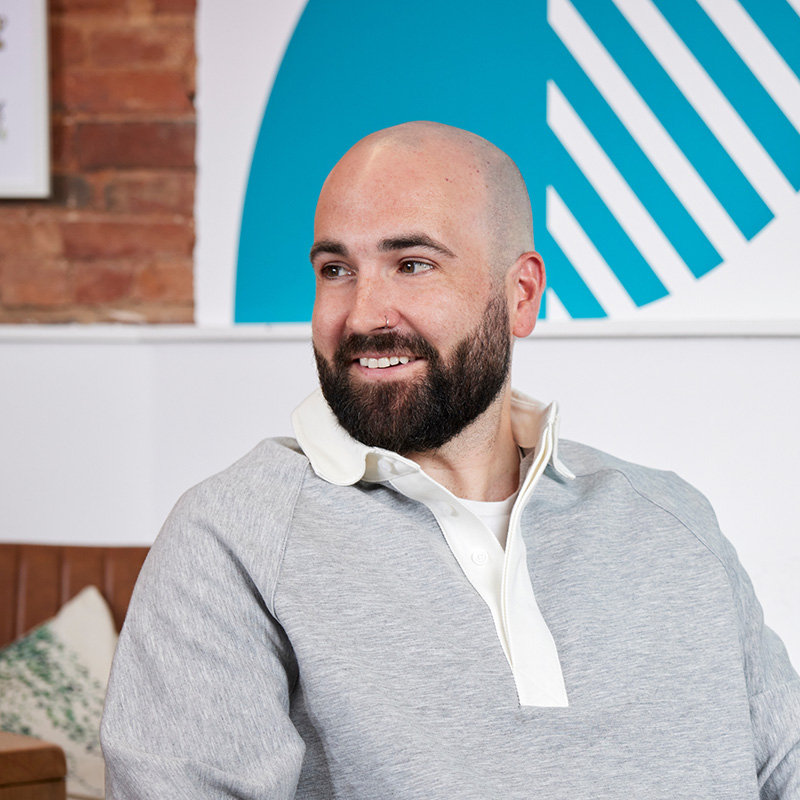At The Marketing Pod, we work with in-house marketers across a wide range of industries, and we’re always intrigued by how their roles are so similar in some ways, and yet so different in others. We believe there’s lots we can learn from our fellow marketers, so in our ‘Ask a Marketer’ series we’re striving to gain some insights that everyone can benefit from.
This time, we’re joined by Glenn Smith. Glenn is a B2B marketing specialist, and he’s spent much of his career to date in one of our favourite sectors: utilities. He was most recently Sales and Marketing Director for Wave Utilities, a leading national water retailer formed from Anglian Water and Northumbrian Water Group, and was involved in the rebranding of Wave and the roll out of their leadership development programme, which delivered cultural change right across the organisation.
Glenn joined us on a podcast recently to talk about building brands and the importance of team culture. Here’s a little of what he had to say:
Q. We know that B2B customers often go through a lengthy process when choosing a supplier or partner to work with, but do you think it’s important for brands to be selective about the customers they target?
A: Absolutely, I think it’s really important to do that. And the starting point is knowing your brand’s sense of purpose. What’s at the heart of your brand. It takes a long time to build that up but it can be destroyed very quickly. So it’s important to focus efforts on customers and contracts that embody those values. One simple example would be selling on value rather than price. It’s a crucial way to differentiate yourself in the marketplace and it stops your customer relationships from becoming purely transactional.
Q. Customer relationships are crucial to the success of any business, but traditionally it would come down to individual salespeople or teams ‘doing right’ by customers and today it has to be a strategic brand objective. What would you say are the most important things brands should be focused on when they’re laying these foundations?
A. I think it comes back to being absolutely crystal clear what you stand for and always staying true to your brand values. Key to this is making sure that your employees are informed and engaged; that they also buy in to your brand purpose. Only by ensuring this can you be sure that your customers will get a consistent experience. I would tell every B2B brand to only employ people that care about the same things as you do - and are willing to act in a way that is true to your brand purpose. We’ve all been to that shop where the employee is behind their counter on their mobile phone or called a call centre and had an arrogant person on the other end of the phone. I’m sure if the business owners we’re aware of this they’d be horrified. It doesn’t matter what you say your company values are if your people don’t buy into it. When they don’t, customer relationships will suffer, the brand won’t deliver on it’s promises and ultimately you will lose customers.
This is where it becomes really important not to manage but to lead people. Without question, you do need management - but it can be overdone. Management is about control, process, procedures. It sets ways of working, but too much of it and people can feel a lack of trust, which can leave them feeling uninspired and unmotivated. Leadership on the other hand is about giving people the freedom to do things for themselves. It’s about inspiring people to be the very best they can be. So ensure your people are engaged in the latest thinking, collaborate with them, get them involved in the essence of what you’re doing. As you can probably tell, this is something I feel very strongly about. Brands should aim to create a culture where people’s input and ideas are truly valued. If they do this, wonderful things can happen for your people and for your business.
Q. When it comes to building relationships, it’s crucial to have an understanding of customer and stakeholder priorities, - and right now, sustainability is often high on that list. How important do you think it is for B2B brands to prioritise sustainability?
A. I would say that I don’t think companies really have a choice on sustainability. They have to do it and do it well. Already, people will choose not to do business with B2B companies who don’t do it. If you look at the large public sector tenders that come out, 4 or 5 years ago they might have been weighted 50/50 quality to price. Lately, they have been 80/20 quality to price. And one of the biggest scoring items in the 80% is around sustainability and social values, so there’s a change in how people are procuring, particularly in the public sector but it’s only a matter of time before other big organisations also see that as the way forward, because that’s what their customers will demand.
Q. What’s your top marketing tip for 2021?
I’m not sure this is a marketing tip, but it’s something I think is worth mentioning. In a world where everything seems to be about digital interaction, I don’t believe you can afford to forget completely about relationships and the human touch. For years, business has been built on good solid relationships, and while digital is clearly becoming increasingly important, I believe that if businesses overly rely on fast digital interactions, they risk losing the strong relationships that make businesses really resilient. So, to sum up I’d say: embrace the power of networking, look for your next relationship not your next digital transaction and lead your teams in a way that inspires them to become your biggest asset.






 Emma Crofts
Emma Crofts
 Alexander Costello
Alexander Costello
 Jessica Keynes
Jessica Keynes
 Raven Wheatley-Hawkins
Raven Wheatley-Hawkins






.png)


